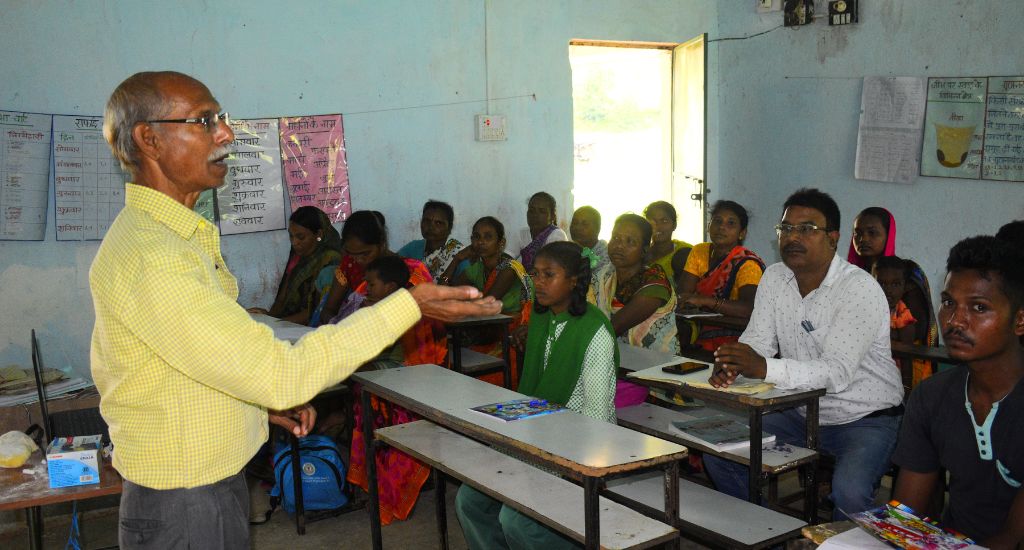
Involving rural parents in children’s education
School management committee discussions bring parents closer to their children’s education in Jharkhand villages.

School management committee discussions bring parents closer to their children’s education in Jharkhand villages.
There are a lot of aspects in which school education in urban areas is different from that in villages. For one, city schools have regular parent-teacher meetings held to help the guardians know what’s happening in the institution and how each young one is faring in studies. But in rural areas parents are not involved much in their children’s education. This gap is being bridged to some extent through the vidyalay prabandh samiti or school management committee (SMC) mechanism.
With an aim to seek the involvement of the parents of students at Doenger Middle School in Rania administrative block, Torpa Rural Development Society for Women (TRDSW) conducted a meeting of the SMC on the theme ‘Rethinking the role of parents with community engagement.’
The SMC meeting at Doenger focused on three aspects – bridging the parent-teacher divide by rethinking parents’ role, institutionalising parent engagement and enabling a positive engagement so that parents could articulate their views.
The meeting, moderated by TRDSW’s master trainer Laldeo Prasad, began with the screening of an animated video clip about the role of parents in children’s education. Prasad then initiated a follow-up discussion on the role of parents in education.
Alexander Tirkey and Suman Tani, supervisors, Education Support for Government Schools, who were also part of the event, told the parents that they should develop an interest in the subjects that the child learns at school. Primary students study Hindi, English, mathematics and general knowledge at the school. They learn Sanskrit from class-6 onwards.
Watch: Right to education: Where there is a wall, there is a way
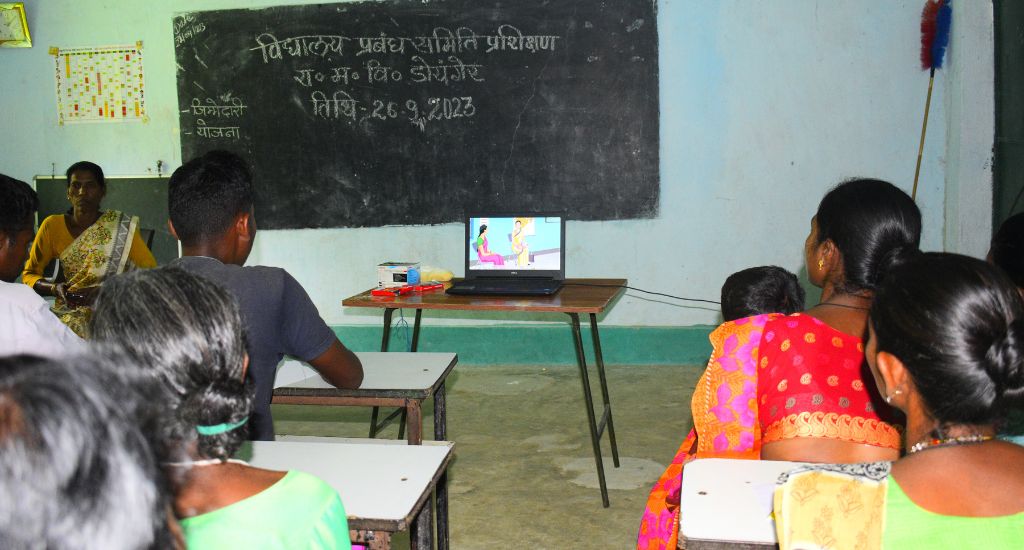
Agreeing with the points made during the discussion, a parent said, “It is our responsibility to check the child’s notebooks regularly.”
Shveta Jadhav, team lead at TRDSW, continued the engagement with the parents, and asked whether they knew about the leadership positions of their own children. The parents seemed unaware. Therefore, the TRDSW team felt the need to engage regularly with parents at such forums. They informed the committee that the organisation had appointed Manju, a new volunteer, to coordinate with the SMC.
Jadhav kept the conversation going. One parent said that it’s the school where the child’s development takes place.
The cluster resource person, Nirmala Longa, felt the need for discipline, and said that home is a child’s first school.
Prasad talked about how parents can help children develop punctuality and cleanliness.
The bal sansad or children’s parliament prime minister, Nirmala Topno from class-8, talked about starting the day with an assembly, and how they had to be role models for the younger children to emulate.
Supervisors Tirkey and Tani told the parents that quality education is the primary focus of TRDSW to enhance the learning level of a child.
Also Read: Karnataka’s rural classrooms get a robot teacher
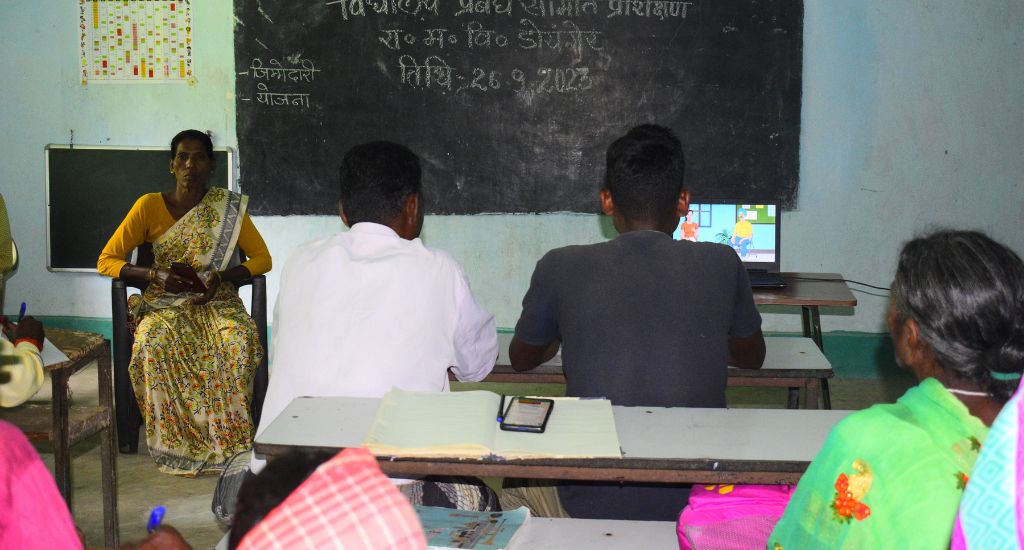
“For children aged 3 to 5 years, we use the play-way method,” they told the parents.
Another issue discussed in the meeting was that not all teaching learning materials (TLMs) provided by the government last for long. Children however constantly refer to TLMs, and teachers can make a subject interesting by using such aids. Also, in order to sustain and localise the learning, parents have to be involved. The supervisors told the parents that they can provide materials available at home as teaching aids. The children can relate with natural materials such as bamboo sticks and tamarind seeds while the parents can easily provide them.
“We use natural materials as teaching aids for simple mathematics like addition and subtraction,” said the supervisors.
Shravan Gope, a teacher at Doenger Middle School, told the parents that TLM are available in every house.
“Be it a chair or a wall clock, there is learning material at home. For instance, insisting that the child refers to the clock to check the time will help in the development of discipline,” said Gope.
As the discussions continued, Jadhav shared a programme implemented among the Gond tribes in Adilabad district of Telangana.
Also Read: Smartphones bringing kids closer to studies in rural India
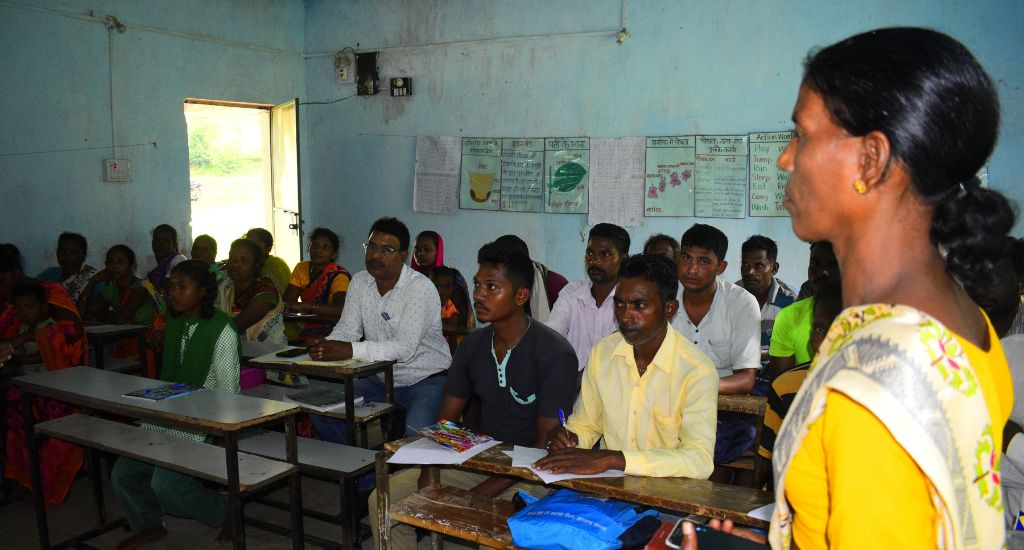
Gondi tribal children are aware that education would help them learn technical skills, according to a study.
“IT companies are funding schools in the Gond tribal area to develop children’s technical skills at an early age. Most children learn these skills in order to pursue a job in the IT sector either in nearby Hyderabad or another city,” said Jadhav.
The children who don’t get a job or are unable to clear the engineering college entrance exam stay back in the village and use their technical knowledge in agriculture. This mindset helps them reduce manual work at the farm and bring in new ideas to handle the various works using machinery.
The meeting was attended by nearly 30 parents from the nearby hamlets of Gumar Toli, Manhatu, Rangrudi and Doenger, who send their children to Doenger Middle School. The group comprised members of the SMC as well as self-help groups.
Pointing out the motivations and aspirations of the tribes in Telangana, Jadhav asked the parents what their aspirations for their children were. Some said that they would want to send their children ‘out’. When Jadhav asked what ‘out’ meant, one parent replied, “Getting a good job.”
But when asked what a ‘good job’ was and if the parents had any specific type of job they wanted their children to pursue, no one responded.
The questions created a positive engagement and helped in articulating the role of parents. The men felt that education should only be pursued to get a job outside their village, while the mothers wanted their children to remain in the village and support them in future.
Also Read: 80% of rural parents wish to see their kids finish college
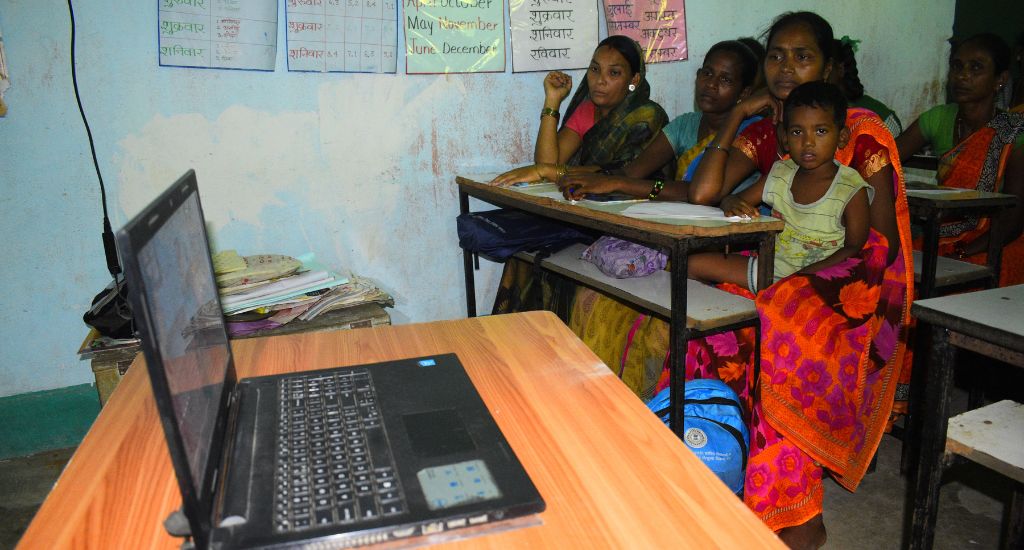
A conclusion among the rural parents was that men think that education is needed for supporting a livelihood and the women wanted the children to become their lifeline.
TRDSW also suggested creating a reading corner in the school library and sought the help of the SMC in making it possible.
Following the discussions, the parents started to rethink their roles in their children’s education, which included allocating study time every day, always encouraging their children and finding out about the challenges the kids faced at school.
The parents also agreed on the importance of growing vegetables and consuming nutritious food. They decided to construct a boundary wall around the school to ensure children’s safety. They also decided to support education through meetings of the gram sabha and self-help groups.
The lead image at the top shows Laldeo Prasad, a master trainer at TRDSW, interacting with parents. (Photo courtesy TRDSW)
Mariaelena Figueredo is the director of TRDSW. Shveta Jadhav is the team lead at TRDSW.